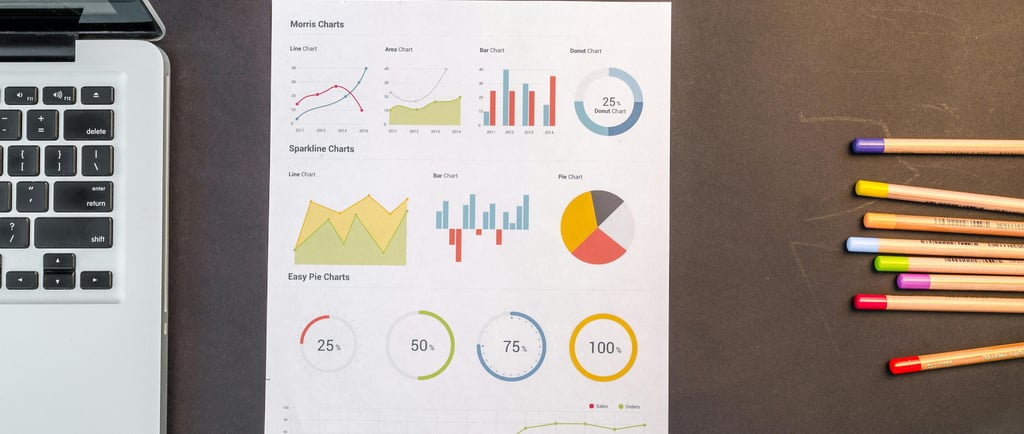Unlocking Visibility: Generative Engine Optimisation for South African Small Businesses
Discover Generative Engine Optimisation (GEO) and its transformative potential for South African small businesses. This blog explains GEO, why it’s vital for SMEs in Johannesburg, Cape Town, and beyond, and offers practical strategies to boost visibility in AI-driven searches. Learn how to leverage local SEO, multilingual content, and AI-friendly tactics to compete in South Africa’s dynamic digital market.
8/25/20254 min read


In the rapidly evolving digital landscape, South African small businesses are facing a new frontier in online visibility. With the rise of artificial intelligence (AI) in search technologies, traditional search engine optimisation (SEO) is no longer sufficient. Enter Generative Engine Optimisation (GEO), a cutting-edge approach designed to enhance how your content performs in AI-driven search engines. If you're a small business owner in Johannesburg, Cape Town, or Durban, grappling with limited marketing budgets and fierce local competition, GEO could be the game-changer you need. This blog explores what GEO entails, why it's crucial for South African SMEs, and practical strategies to implement it, all tailored to our unique market.
What is Generative Engine Optimisation?
First, let's demystify the basics for those new to the concept. Generative Engine Optimisation refers to the process of optimising digital content so that it is effectively discovered, interpreted, and recommended by generative AI engines. Unlike traditional SEO, which focuses on ranking high in search engine results pages (SERPs) like Google, GEO targets AI models such as ChatGPT, Google Gemini, or Grok. These tools generate responses based on natural language queries, pulling from vast datasets to create synthesised answers. For instance, when a user asks, "Best coffee shops in Cape Town," an AI might compile a list from optimised sources rather than linking to websites directly.
To break it down further: A generative engine is an AI system that creates content or answers on the fly, using machine learning to understand context and intent. Optimisation here involves structuring your content to be "AI-friendly"—think clear, authoritative language, structured data, and relevance to conversational queries. For South African small businesses, this means adapting to a market where mobile searches dominate (over 60% of internet users in SA access the web via smartphones, according to recent Stats SA data), and where local nuances like multilingualism (Afrikaans, isiZulu) play a key role.
Why GEO Matters for South African SMEs
Why should South African SMEs care about GEO South Africa? In a country where small and medium enterprises (SMEs) contribute over 40% to GDP but often struggle with digital adoption, AI-driven searches are reshaping consumer behaviour. Traditional SEO relies on clicks and backlinks, but generative engines provide direct answers, potentially bypassing your website altogether. If your business isn't optimised, you risk invisibility. Consider this: A Durban-based artisan might lose out if their handcrafted goods aren't featured in AI responses to queries like "Unique souvenirs in KwaZulu-Natal." Moreover, with South Africa's economic challenges—high unemployment and post-pandemic recovery—cost-effective marketing is vital. GEO offers a low-barrier entry; it doesn't require expensive ads but smart content tweaks.
The shift to AI SEO for small businesses is driven by global trends trickling into local markets. In South Africa, where e-commerce grew by 66% during the COVID-19 era, AI tools are increasingly used for discovery. Tools like Grok or Perplexity AI analyse content for fluency, uniqueness, source credibility, quotations, statistics, and simplicity—key pillars of GEO. For SMEs, this means focusing on generative AI optimisation to ensure your blog posts, product descriptions, or social media appear in AI-generated summaries.
Key Strategies for Implementing GEO
Now, let's delve into strategies. Start with SEO for AI South Africa, which blends local SEO with AI principles. Use geo-modified keywords like "GEO services Johannesburg" or "AI optimisation Cape Town small businesses" to target regional searches. For example, a Pretoria retailer could optimise their site with phrases such as "Generative Engine Optimisation Durban SMEs" if expanding eastward, ensuring content resonates with local dialects and contexts.
One effective tactic is creating AI-driven search optimisation content. This involves long-tail keywords—specific phrases that mimic natural speech. Queries like "How to optimise for AI search in South Africa" or "Best GEO strategies for small businesses in South Africa" are goldmines. Incorporate them into FAQs, guides, or videos. For instance, a Cape Town boutique might write: "Wondering what is Generative Engine Optimisation for South African companies? It's about making your fashion line pop in AI chats about trendy outfits in the Western Cape."
Emphasise local SEO AI by leveraging South Africa's diversity. Include multilingual elements; for isiZulu-speaking markets, use "Optimised content for AI in isiZulu-speaking markets." This boosts inclusivity and reach in areas like Soweto or rural KwaZulu-Natal. Tools like Google's Structured Data Markup can help, signalling to AI engines that your content is reliable.
Another pillar is performance SEO South Africa, focusing on metrics AI values: engagement, freshness, and authority. Update content regularly with stats from local sources, like the South African Revenue Service (SARS) on business trends. For holistic SEO services, combine GEO with social media; X (formerly Twitter) posts optimised for AI could use hashtags like #GEOSouthAfrica to gain traction.
Practical Tips and Best Practices
Practical tips for implementation: Begin with a content audit. Identify gaps using tools like Ahrefs or free alternatives, targeting content optimisation for AI. Structure articles with headings, bullet points, and data visuals—AI loves scannable formats. For GEO tips for local businesses Cape Town, advise using location-specific stories: "How GEO can help small businesses in Durban" by sharing success tales of a local eatery boosting footfall via AI mentions.
Case in point: Imagine a Johannesburg startup in eco-friendly products. By optimising for "AI optimisation for SMEs Johannesburg," they craft blogs with unique insights, like "Local keyword analysis for AI SEO South Africa," citing SA-specific environmental data. This positions them as authorities, increasing the chances of AI citations.
For generative AI for small business marketing in Pretoria, integrate voice search optimisation, as many South Africans use Siri or Google Assistant. Phrases like "Future of SEO with GEO in South Africa" can future-proof your strategy, discussing AI's role in post-2025 digital shifts.
Overcoming Challenges
Challenges exist: Data privacy under POPIA (Protection of Personal Information Act) means ethical GEO is key—avoid manipulative tactics. Budget constraints? Start small; free tools like ChatGPT can test how your content fares in simulations.
Conclusion
In conclusion, Generative Engine Optimisation isn't a buzzword—South African small businesses need to thrive in an AI-dominated world. By embracing GEO South Africa and keywords, you can enhance visibility, drive traffic, and compete globally from local roots. Whether in Gauteng's bustling markets or the Eastern Cape's emerging scenes, GEO levels the playing field.
